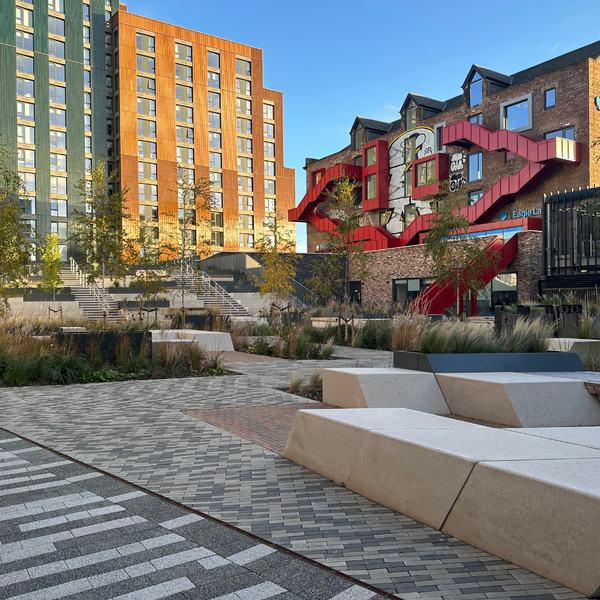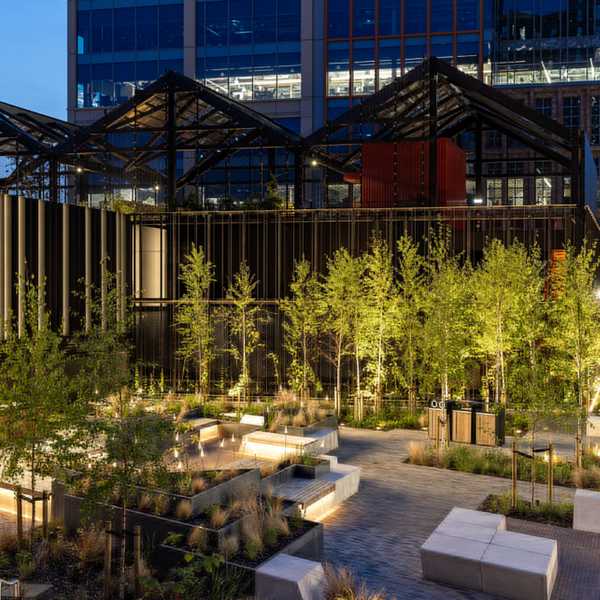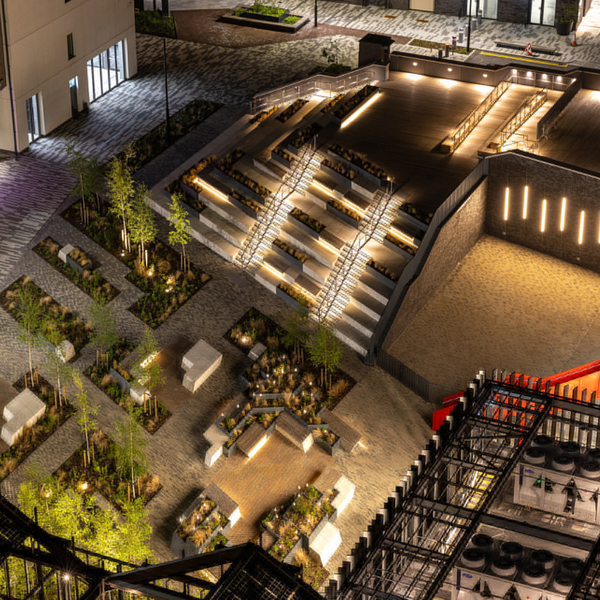Get updates from The Developer straight to your inbox Yes, please!
Barclays Beco Dragonfly Plot 4, Glasgow, Drum Property with OOBE, Stallan-Brand, Turner & Townsend, BDP, AECOM, Arup and TUV SUD
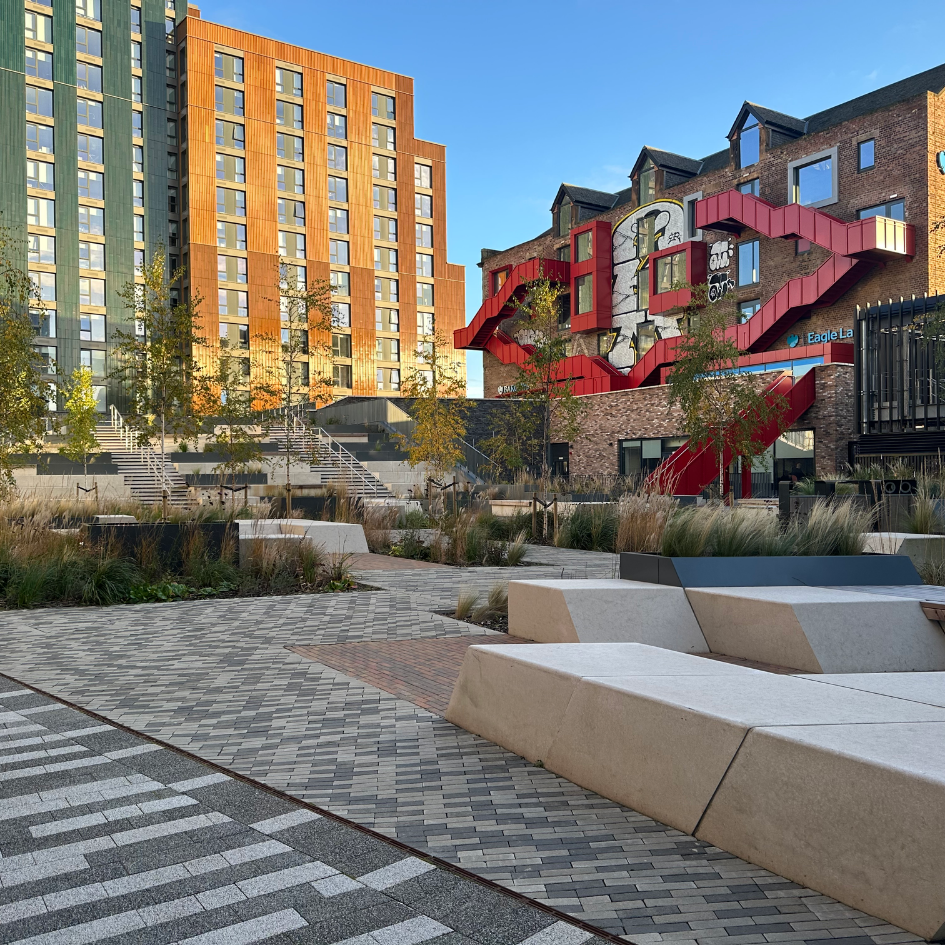
The Glasgow Barclays Campus, located in the historic Tradeston manufacturing district, is part of the Tradeston regeneration project. Three years of research and consultation aligned with Glasgow City Council’s planning framework to enhance the riverside promenade. The design directs movement from the city and river towards the heart of the Barclays site, creating a natural flow and revitalising the area to integrate seamlessly with the surrounding urban fabric.
*Public Space is supported by Vestre*
Who is on the project team? (designer, consultants, etc)
Architect - BDP
Structural Engineer - AECOM
Civil Engineer - AECOM
MEP Engineers - Arup and TUV SUD
Landscape – Stallan-Brand and OOBE
Acoustician – Arup
Describe the context of this project, its neighbourhood and people.
The Glasgow Barclays Campus is more than a workplace; it is a vibrant community within a dynamic urban setting. Situated in the heart of Tradeston, a historic manufacturing district, the project celebrates the area’s heritage while contributing to its ongoing regeneration. This ambitious development aims to celebrate the site’s unique riverfront heritage, shaped by the Clyde River and its historical wharf activities. Our goal was to enhance the broader riverside promenade while creating an exceptional public space in Scotland. We planned to achieve this using high-quality materials and innovative and salutogenic design principles. Our team focused on creating a multifunctional public space that is inclusive, welcoming, and sustainable. A biophilic design approach connects people to nature through established greenery, walking paths, and thoughtfully designed seating areas, fostering well-being and productivity for employees and visitors alike. The space balances hard landscaping with green features to enhance biodiversity and sustainability while offering safe, accessible, and memorable experiences for diverse users.
Tell us what you did and how it was designed and delivered. Please explain the governance of the project.
Our team’s approach to this project was rooted in innovation, sustainability, and improving quality of life. The brief was to create a distinctive, inviting public realm at the heart of the development—a space that fosters social interaction, well-being, and community cohesion while reflecting local heritage and contributing to economic vitality. The team transformed the site into a vibrant green space through thoughtful and sensitive design. The scheme integrates easy maintenance planting, sustainable local materials, and flexible spaces that accommodate diverse uses, from casual gatherings to events. These design elements align with the overarching Masterplan’s commitment to achieving a BREEAM Excellent rating, with Plot 4 excelling in key categories such as land use and ecology, water, and materials. Community consultation was integral to the design development. Nearly three years of research and consultation were conducted as part of the Tradeston regeneration project, which aligned with Glasgow City Council’s planning framework and the Scottish Government. Feedback from local stakeholders shaped aspects such as accessibility, safety, and the space’s multifunctionality, ensuring it would be inclusive and welcoming for all. The project’s governance involved collaboration with key stakeholders, including Barclays and Glasgow City Council. This ensured the project’s viability and alignment with broader strategic objectives. Rigorous project management and sustainable practices were maintained, guiding every phase from initial concept to delivery.
How does this public space bring people together, encourage inclusivity, and make a positive environmental impact to the wider place?
Beco Dragonfly Plot 4 was a site left derelict for over twenty years. It now has a biophilic design that offers a peaceful retreat from urban life and supports mental and physical well-being. Green spaces like this are scientifically proven to reduce stress and enhance quality of life, creating a space where diverse community members feel welcome and rejuvenated. To bring people together, the design features flexible spaces that encourage informal recreation, social gatherings, and shared experiences. Seating areas, outdoor dining spaces, and zones for play and events facilitate interactions across age groups and backgrounds, while food production opportunities promote collaboration and shared purpose. The central social invites pedestrians to engage with the space, fostering community identity and supporting local businesses. All year round, the people of Glasgow use the natural, resilient spaces, which have gone from vacant blocks to contributing to the economic sustainability of the city and NPF3. Inclusivity is woven into the project through its accessible design and focus on creating a space for everyone. This includes prioritising diverse uses, ensuring physical accessibility, and creating an environment where all voices are valued.
Gallery
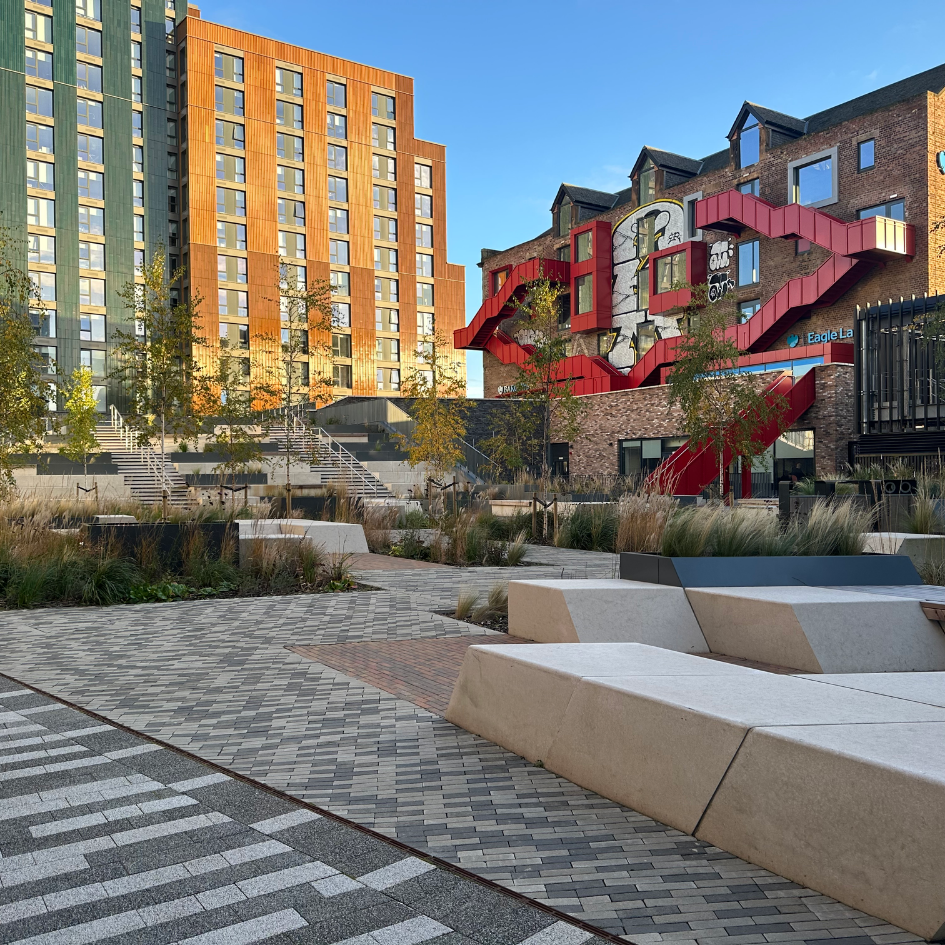
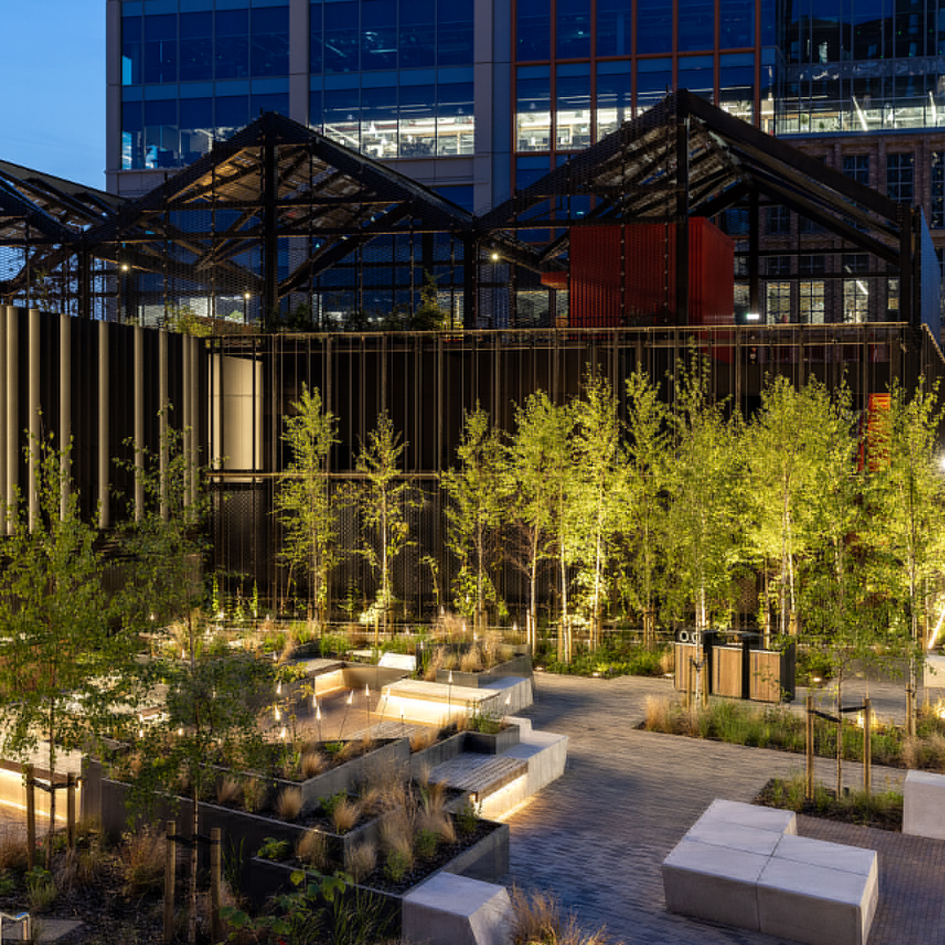
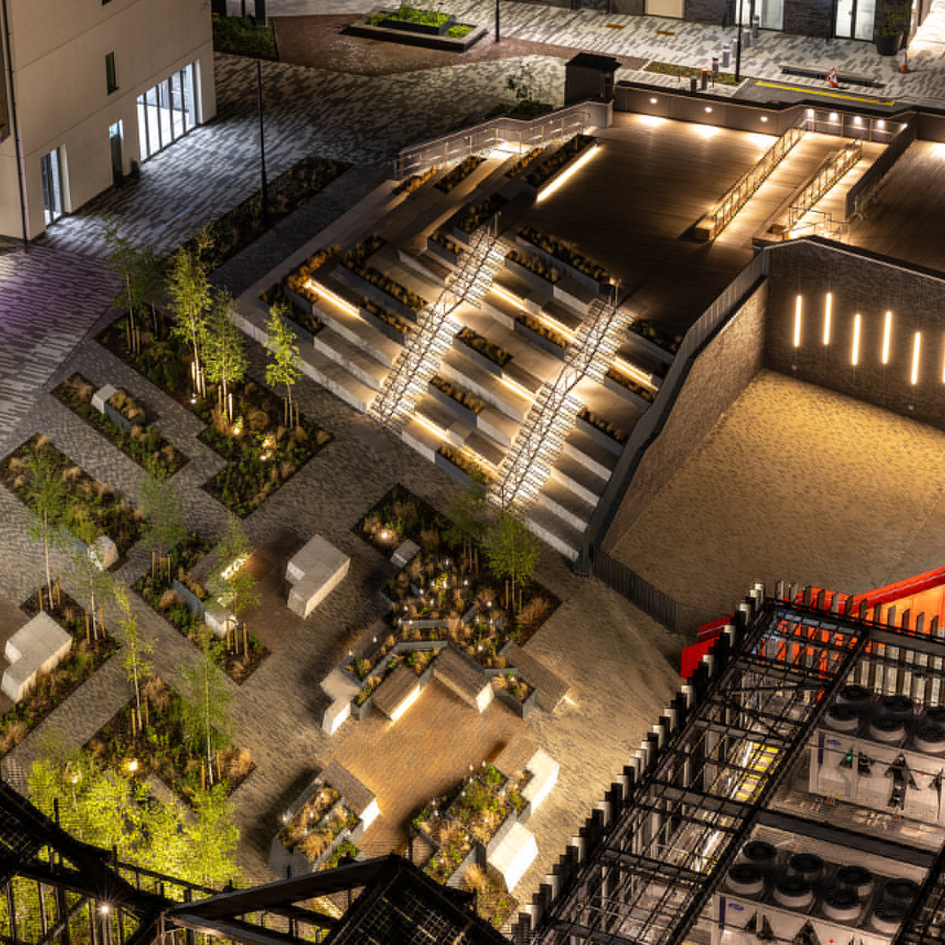
Sign up to our newsletter
Get updates from The Developer straight to your inbox
Thanks to our organisation members
© Festival of Place - Tweak Ltd., 124 City Road, London, EC1V 2NX. Tel: 020 3326 7238
